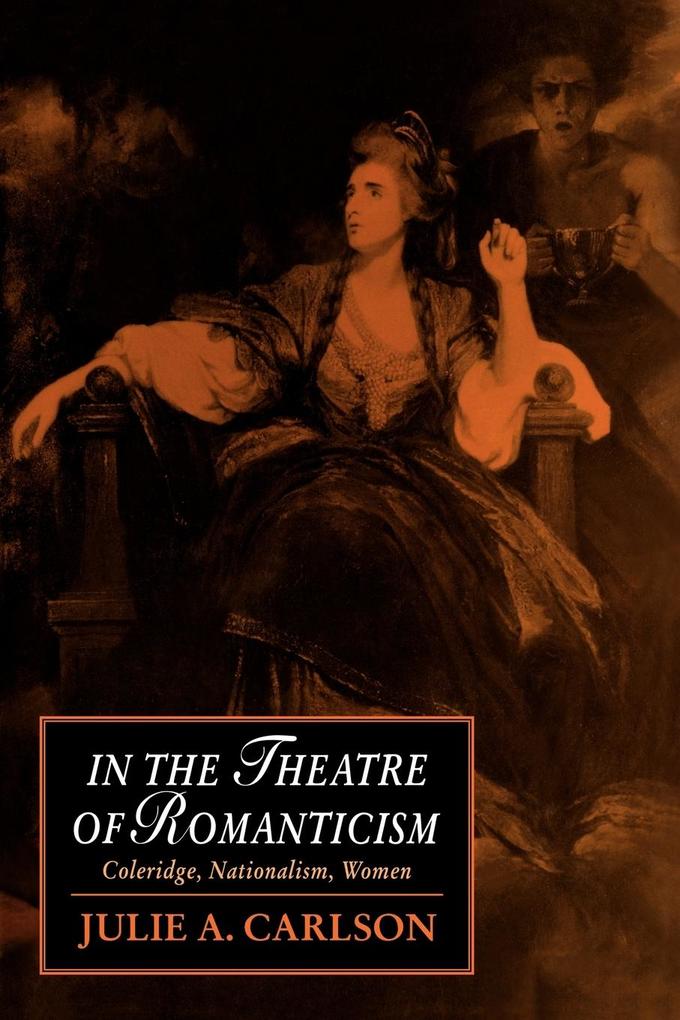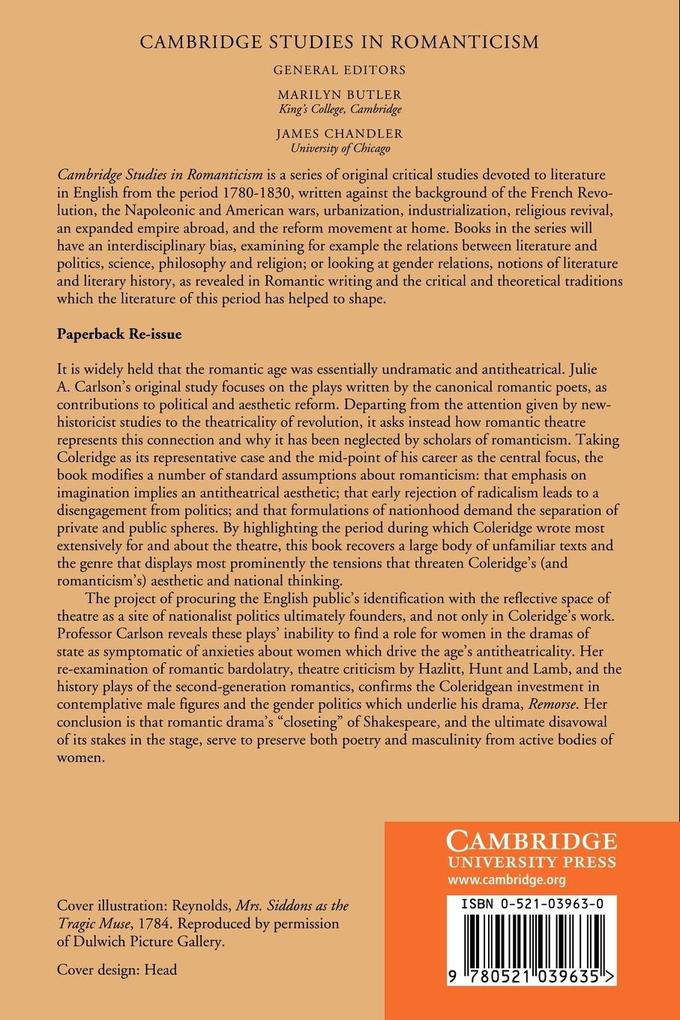
Zustellung: Fr, 11.07. - Di, 15.07.
Versand in 5 Tagen
VersandkostenfreiBestellen & in Filiale abholen:
English Romanticism has long been considered an 'undramatic' and 'anti-theatrical' age, yet Wordsworth, Coleridge, Byron, Shelley and Keats all wrote plays and viewed them as central to England's poetic and political reform. In the Theatre of Romanticism analyses these plays, in the context of London theatre at the time, and argues that Romantic discourse on theatre is crucial to constructions of nationhood in the period. The book focuses primarily on Coleridge and on the middle stage of his career, during which he wrote most extensively for and about the theatre. But its discussion of anxieties about women in Coleridge's plays applies just as forcefully to the history plays of the second-generation romantic poets, and to the best-known romantic writers on theatre: Hazlitt, Hunt and Lamb. Unlike the few existing studies of romantic drama, this original study considers the plays not as closet drama or 'mental theatre', but as theatrical contributions to the debate sparked off by the Revolution in France.
Inhaltsverzeichnis
Acknowledgements; List of abbreviations; Introduction: commanding genius in English romantic theatre; 1. Constituting bodies politic and theatric; 2. Coleridge's German revolution: Schiller's Wallenstein; 3. A stage for potential men; 4. Romantic anti-theatricalism: surveilling the beauties of the stage; Conclusion: a theatre of remorse; Notes; Index.
Produktdetails
Erscheinungsdatum
30. Juni 2007
Sprache
englisch
Seitenanzahl
284
Autor/Autorin
Julie A. Carlson
Verlag/Hersteller
Produktart
kartoniert
Gewicht
465 g
Größe (L/B/H)
229/152/17 mm
ISBN
9780521039635
Entdecken Sie mehr
Bewertungen
0 Bewertungen
Es wurden noch keine Bewertungen abgegeben. Schreiben Sie die erste Bewertung zu "In the Theatre of Romanticism" und helfen Sie damit anderen bei der Kaufentscheidung.










